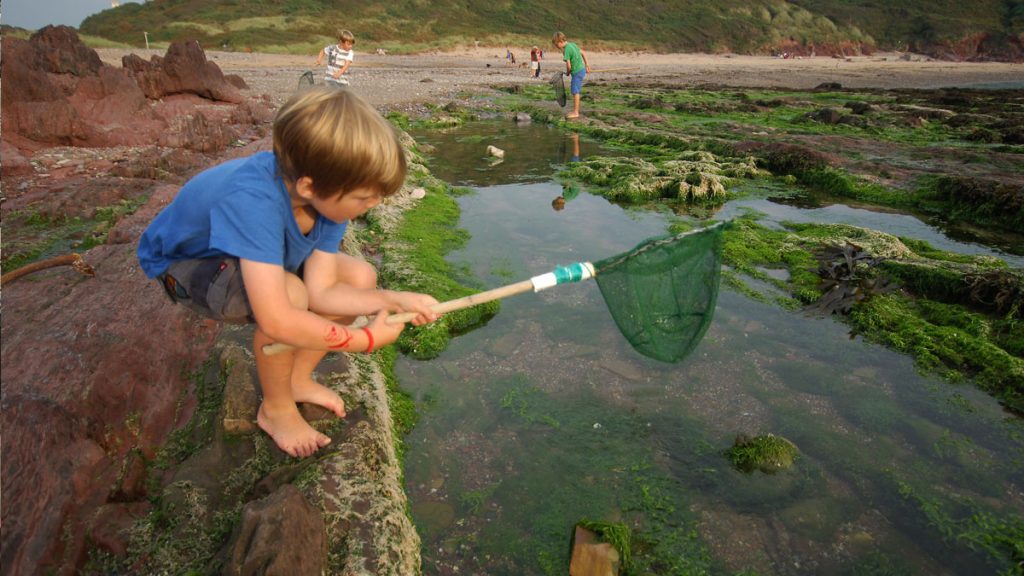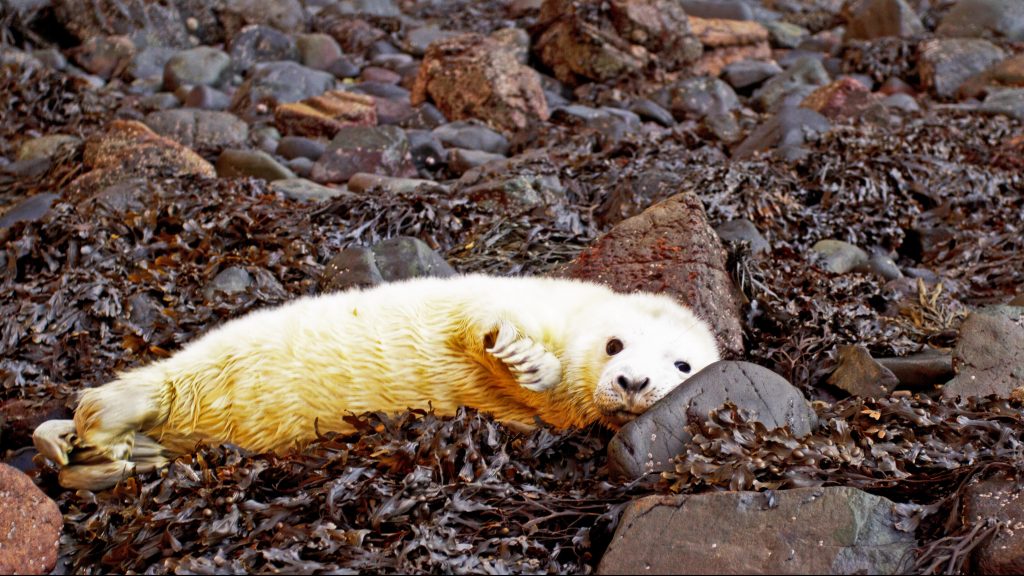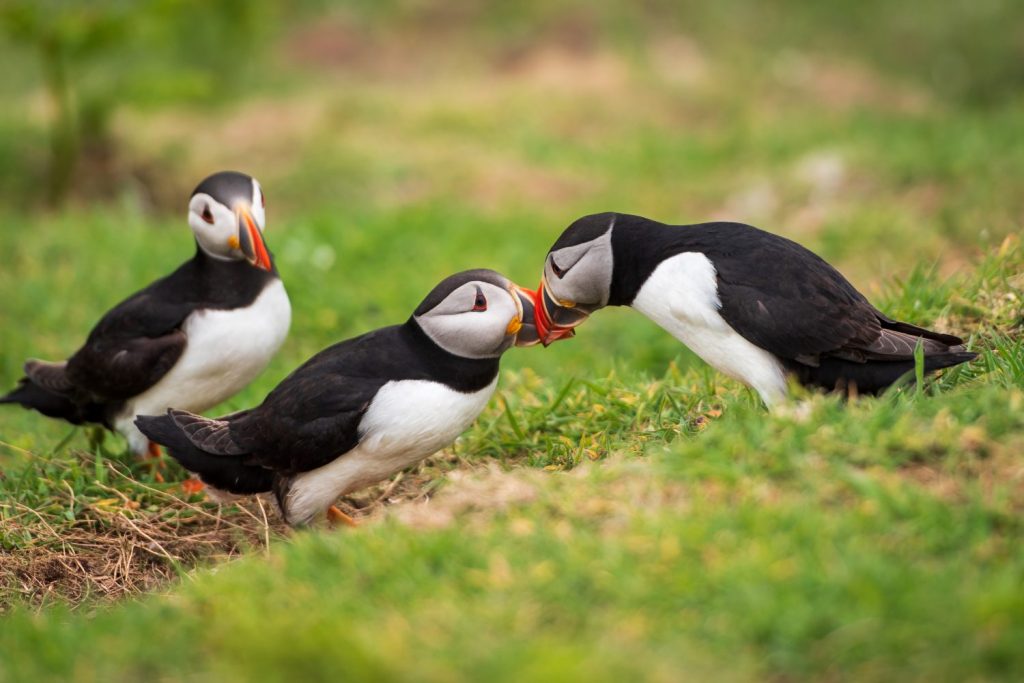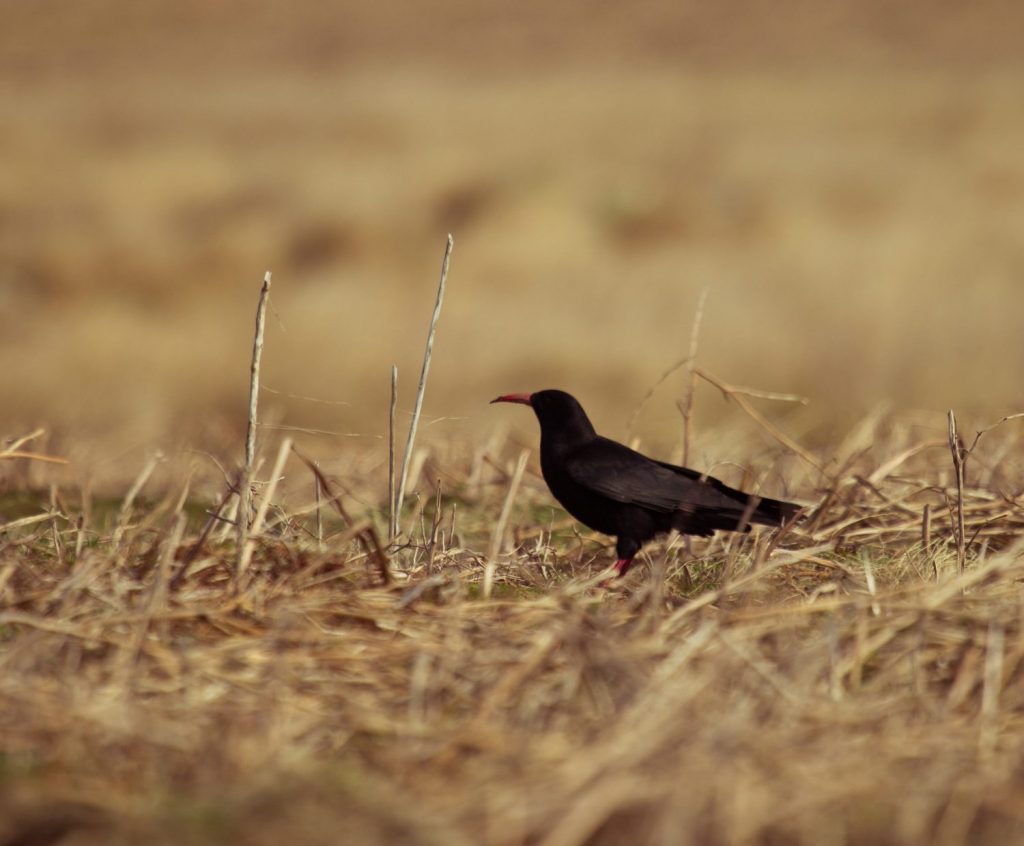The nutrient-rich waters off the Pembrokeshire Coast attract a wealth of wildlife to the sea, the shore, the cliffs and the sky above, making it one of the best places in Europe for marine wildlife.
Seals love Pembrokeshire! There are approximately 5,000 Atlantic grey seals in the waters around Pembrokeshire. The coast and waters around Pembrokeshire are protected. If we look after them we can enjoy them now and for years to come.
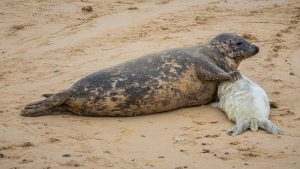
Where and when
Seals can be seen swimming and playing in the waters around the coast at any time of year. They come ashore to moult in the winter and early spring, and females come ashore to pup in the autumn. You may see them and their fluffy white pups on undisturbed beaches from August to November. The offshore islands of Skomer and Ramsey are particularly popular with seals – Ramsey has between 500 and 700 pups born each year, making it the largest grey seal pupping site in southern Britain.
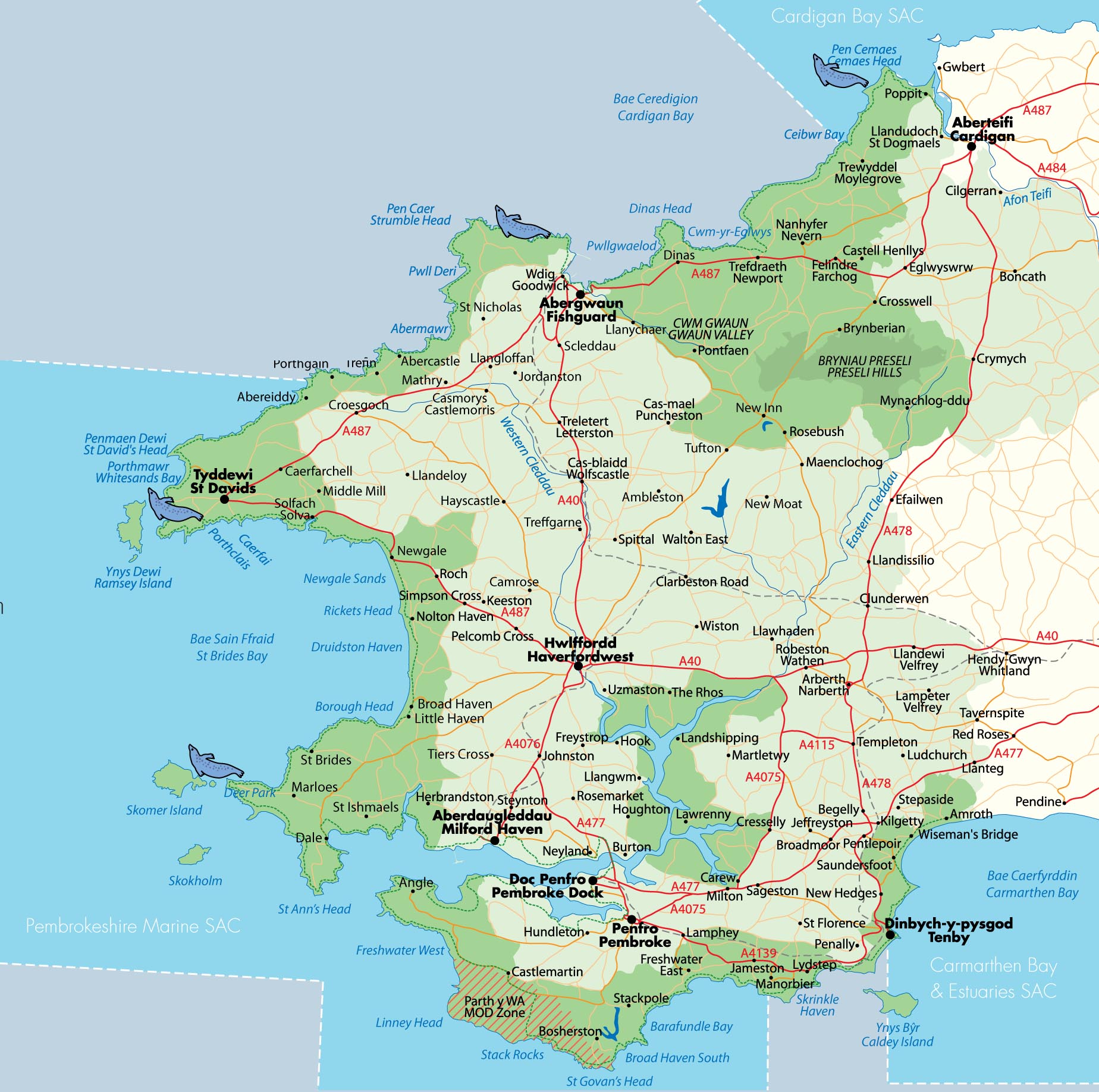
Code of conduct
Seals are protected by law. We are lucky to share our special place with them.
From land
- Seals are best viewed from the coast path – it’s handy to have a pair of binoculars. Please take care on the cliffs and keep a low profile.
- Keep off beaches with seal pups present
- Dogs can be particularly disturbing to seals
- Keep noise to a minimum
- Move away if you notice signs of disturbance
From the water
- Avoid landing on pupping beaches or beaches where seals are hauled out
- Avoid coming between a mother and her pup
- Keep boat speed low on arrival and departure, and ensure only one boat at a time viewing seals
- Keep at least 20 metres away, but preferably 50 metres
- Move away if you notice signs of disturbance
- Do not try to swim with, touch or feed seals
Notes
- If a pup is alone on a beach it usually means that its mother is nearby in the water. Make sure you keep well away so she can return to her pup when she needs to.
- If you do spot a seal in distress, call the RSPCA on 0300 1234 999. Visit our Stranded or Distressed Wildlife page for more details.
Funky Facts
- The translation of the scientific name means ‘hook nosed sea pig’.
- Seals are good divers. They can stay under water for up to 30 minutes, and can dive down to 70 metres.
- Seals can spend 80% of their time under water, and can even sleep in the water.
- They use their whiskers to pick up vibration trails of their prey.
- Joke: Why do seals swim in salt water? Because pepper water makes them sneeze!
